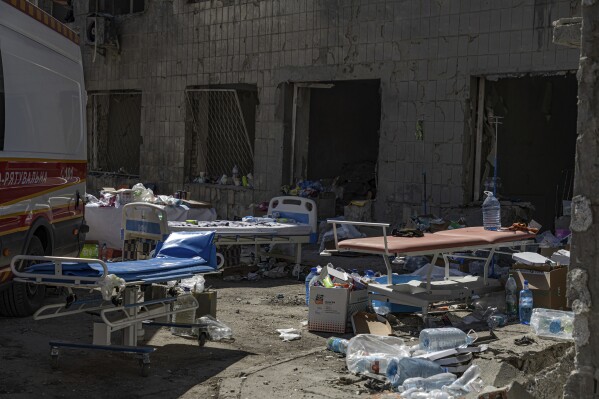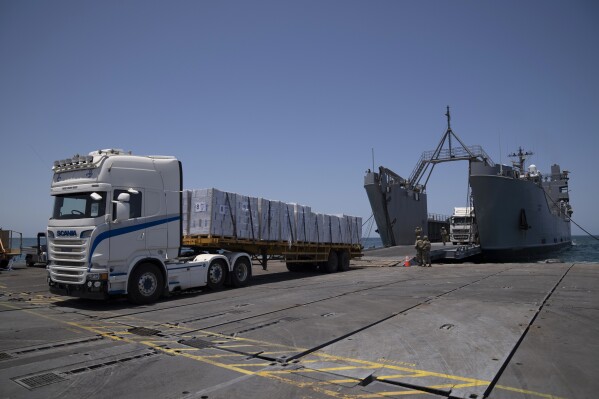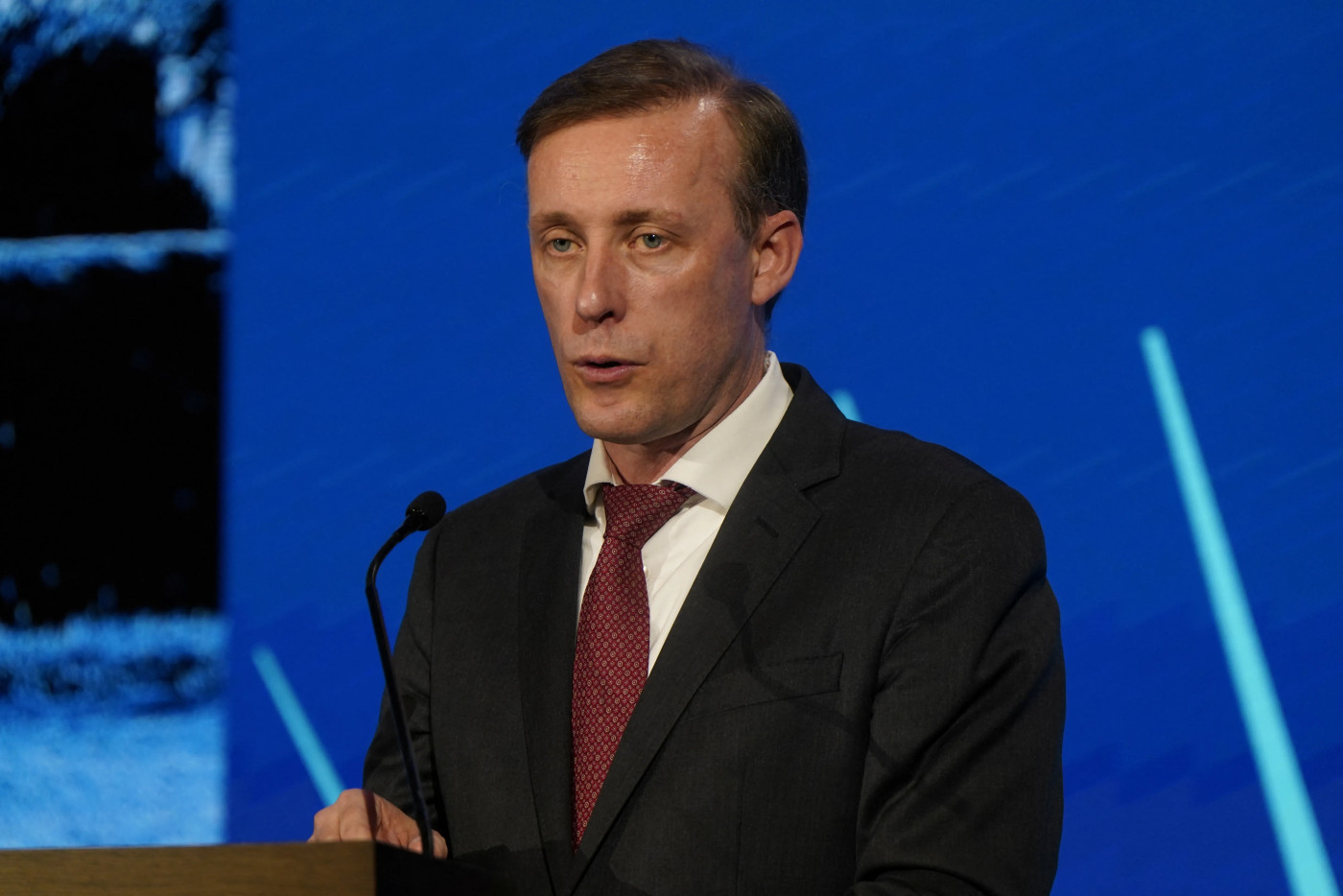What a Trump Presidency Would Mean for NATO
Vladimir Putin's invasion of Ukraine heralded the unwelcome return of war in mainland Europe, once again bringing NATO's role in global stability and security into sharp focus.
As the alliance marks its 75th anniversary with a summit in Washington this week, member states will be ever-mindful that it was formed in the aftermath of the Second World War.
Former president Donald Trump, the presumptive Republican nominee for this year's Presidential Election, has been highly critical of NATO in the past and the prospect of his reelection later this year presents an element of uncertainty for the bloc.
Spending Commitments
In February Trump said that were Russia were to invade a Nato country that was not meeting its minimum spending targets, he would "encourage them to do whatever the hell they want....You got to pay your bills."
His choice of words was widely condemned as reckless but many allies share his frustration with wealthy countries such as Germany, which has historically fallen short of the agreed spending targets while enjoying the benefits of collective security.
Defence experts told Newsweek that the sentiment behind Trump's rhetoric can be viewed as a continuation of previous administrations' stances.
"The real change began before the Trump presidency (at the 2014 Wales summit under President Obama) and this year, 23 of the 32 states are meeting or exceeding their 2 percent of GDP commitments," said Patricia Lewis, Director of the International Security Programme at Chatham House, a British international affairs think tank.
"The standouts at less than 2 percent include Canada, Italy, Spain and Belgium. However a number of NATO members contribute significantly more," she added.
"In a general sense, and from an American perspective, Trump's criticisms are fair. In fact, US presidents have a long history of criticizing NATO members for not pulling their weight on military spending. [...] Obama referred to NATO members as 'free riders' who didn't pay their fair share," said Rubrik Biegon, lecturer of international relations at the University of Kent.
"The difference with Trump is that his rhetoric is typically blunt and undiplomatic. This may be because he is speaking to a different audience. Taking a rhetorical hard line on NATO may play well with Trump's base. It allows him to advance an America First narrative even if, in policy terms, Washington's approach toward NATO remains relatively steady across different administrations," he added.
Could Trump pull the United States out of NATO?
NATO's article 5 is a collective defence clause stipulating that an attack against one or more NATO members is considered an attack against all.
Whilst the U.S. is by far the biggest contributor to NATO - both in terms of spending and manpower - withdrawal would diminish the collective security it presently enjoys. A war against China, for example, would require allies.
"It can't be ruled out because former President Trump is known for doing surprising things and making good on threats.
"But, by merely giving voice to such threats, Trump undermines NATO and European security and sends a message to Putin that he may have a future NATO that is not fully supported by the US – at the least, Putin might calculate that the US would weaken it military commitment and perhaps delay Article 5 support in the event of Russian incursions," Lewis added.
"In reality, we don't know what Trump would do and he probably doesn't either. But it would certainly include more pressure on Europe to spend more and also to use more of its own people in Europe so that the U.S. could remove some of its people and deepen its focus on the Indo Pacific", said Leslie Vinjamuri, also of Chatham House.
"It all sounds perfectly rational in theory. In practice it would likely be loud, noisy, disruptive, and potentially destructive."
Could Ukraine Join NATO?
Ukraine and its relationship with NATO will undoubtedly be a key talking point at the summit, especially in the wake of Russian strikes across the Eastern European country earlier this week which left dozens dead and over a hundred wounded.
"If Trump is elected President that would likely mean the end of any hope or promise of Ukraine's membership in NATO. This means a lot of pressure on Europe to come up with clear alternatives for securing Ukraine," said Vinjamuri.
"Despite the calls from various quarters to bring Ukraine into the alliance, many analysts see this as unlikely," Biegon said.
"Simply put, for many NATO allies, their national interests would not be served by Ukraine joining, partly because it threatens a dangerous escalation of tensions with Russia. Ukraine's future position with regards to NATO may also end up being part of a negotiated settlement of the conflict, though this does not seem to be a likely near-term outcome.
"A Trump victory would make conversations about Ukraine joining NATO hypothetical for the time being, but this was always a long-term issue. Western officials have routinely asserted that if Ukraine joined, this would happen at some undisclosed date in the future," he added.
Newsweek also spoke with Admiral Lord Alan West, who served as security advisor to Prime Minister Gordon Brown. He suggested that the prospect of Ukraine joining NATO was unlikely at present.
"The bottom line is that Ukraine cannon join NATO when it is fighting a war against someone," he said.
What do the Trump and Biden Campaigns Say?
Steven Cheung, a spokesman for Trump, told Newsweek: "President Trump has repeatedly stated that a top priority in his second term will be to quickly negotiate an end to the Russia-Ukraine war. President Trump believes European nations should be paying more of the cost of the conflict, as the U.S. has paid significantly more, which is not fair to our taxpayers.
"He will do what is necessary to restore peace and rebuild American strength and deterrence on the world stage, and he is the only person who can make that happen."
James Singer, a spokesman for Biden, said: "The eyes of the world will be on the NATO summit this week, where Joe Biden has strengthened, expanded, and led the NATO alliance against Putin's violation of Ukraine's sovereignty and unwarranted aggression.
"Donald Trump would weaken our national security, sell out our NATO allies, and empower Putin. This November, the future of democracy and human rights are on the ballot."
Do you have a story we should be covering? Do you have any questions about NATO or the 2024 Presidential Election? Contact LiveNews@newsweek.com
Disclaimer: The copyright of this article belongs to the original author. Reposting this article is solely for the purpose of information dissemination and does not constitute any investment advice. If there is any infringement, please contact us immediately. We will make corrections or deletions as necessary. Thank you.



